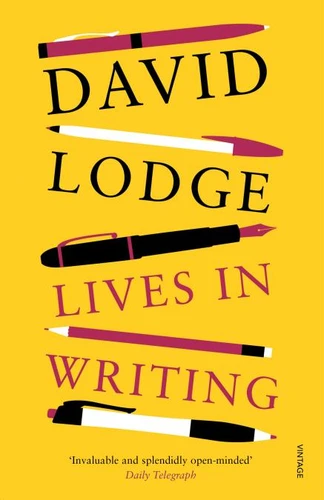David Lodge, né le 28 janvier 1935 à Londres, homme de lettres britannique, est désormais mondialement connu ; ses ouvrages sont traduits dans une dizaine de langues. Après des études de lettres, il enseigne la littérature à partir de 1960, tout en préparant sa thèse et en commençant à rédiger des uvres de fiction. Le succès venant, il décide de quitter l'enseignement en 1987 pour se consacrer uniquement à l'écriture. Cette expérience lui inspire "Jeux de société" (1988) publié chez Rivages en 1990. Par ailleurs, il permet au grand public d'accéder à ses travaux théoriques, en donnant dès 1991 au journal "The Independant", des articles sur le roman ou la poésie ; ces rubriques seront publiées en 1992 dans "The art of fiction" et éditées en France en 2009 chez Rivages, son éditeur pour les traductions en langue française. On peut trouver en catalogue notamment : "Nouvelles du paradis" (1991), "Jeux de mots" (1993), "Pensées secrètes" (2002), "La vie en sourdine" (2008) ou "Un homme de tempérament" (2012).
Lives in Writing
Par :Formats :
Disponible dans votre compte client Decitre ou Furet du Nord dès validation de votre commande. Le format ePub protégé est :
- Compatible avec une lecture sur My Vivlio (smartphone, tablette, ordinateur)
- Compatible avec une lecture sur liseuses Vivlio
- Pour les liseuses autres que Vivlio, vous devez utiliser le logiciel Adobe Digital Edition. Non compatible avec la lecture sur les liseuses Kindle, Remarkable et Sony
- Non compatible avec un achat hors France métropolitaine
 , qui est-ce ?
, qui est-ce ?Notre partenaire de plateforme de lecture numérique où vous retrouverez l'ensemble de vos ebooks gratuitement
Pour en savoir plus sur nos ebooks, consultez notre aide en ligne ici
- Nombre de pages272
- FormatePub
- ISBN978-1-4481-8207-7
- EAN9781448182077
- Date de parution06/02/2014
- Protection num.Adobe DRM
- Infos supplémentairesepub
- ÉditeurVintage Digital
Résumé
A collection of essays on writers and writing by the Booker-shortlisted novelist and critic. Writing about real lives takes various forms, which overlap and may be combined with each other: biography, autobiography, biographical criticism, biographical fiction, memoir, confession, diary. In these thoughtful and enlightening essays David Lodge considers some particularly interesting examples of life-writing, and contributes several of his own.
The subjects include celebrated modern British writers such as Graham Greene, Kingsley Amis, Muriel Spark and Alan Bennett, and two major figures from the past, Anthony Trollope and H. G. Wells. Lodge examines connections between the style and the man in the diaries of the playwright Simon Gray and the cultural criticism of Terry Eagleton, and recalls how his own literary career was entwined with that of his friend Malcolm Bradbury.
All except one of the subjects (Princess Diana) are or were themselves professionally "in writing", making this collection a kind of casebook of the splendours and miseries of authorship. In a final essay Lodge describes the genesis and compositional method of his recent novel about H. G. Wells, A Man of Parts, and engages with the critical controversies that have been provoked by the increasing popularity of narrative and dramatic writing that combines fact and fiction.
Drawing on David Lodge's long experience as a novelist and critic, Lives in Writing is a fascinating study of the interface between life and literature.
The subjects include celebrated modern British writers such as Graham Greene, Kingsley Amis, Muriel Spark and Alan Bennett, and two major figures from the past, Anthony Trollope and H. G. Wells. Lodge examines connections between the style and the man in the diaries of the playwright Simon Gray and the cultural criticism of Terry Eagleton, and recalls how his own literary career was entwined with that of his friend Malcolm Bradbury.
All except one of the subjects (Princess Diana) are or were themselves professionally "in writing", making this collection a kind of casebook of the splendours and miseries of authorship. In a final essay Lodge describes the genesis and compositional method of his recent novel about H. G. Wells, A Man of Parts, and engages with the critical controversies that have been provoked by the increasing popularity of narrative and dramatic writing that combines fact and fiction.
Drawing on David Lodge's long experience as a novelist and critic, Lives in Writing is a fascinating study of the interface between life and literature.
A collection of essays on writers and writing by the Booker-shortlisted novelist and critic. Writing about real lives takes various forms, which overlap and may be combined with each other: biography, autobiography, biographical criticism, biographical fiction, memoir, confession, diary. In these thoughtful and enlightening essays David Lodge considers some particularly interesting examples of life-writing, and contributes several of his own.
The subjects include celebrated modern British writers such as Graham Greene, Kingsley Amis, Muriel Spark and Alan Bennett, and two major figures from the past, Anthony Trollope and H. G. Wells. Lodge examines connections between the style and the man in the diaries of the playwright Simon Gray and the cultural criticism of Terry Eagleton, and recalls how his own literary career was entwined with that of his friend Malcolm Bradbury.
All except one of the subjects (Princess Diana) are or were themselves professionally "in writing", making this collection a kind of casebook of the splendours and miseries of authorship. In a final essay Lodge describes the genesis and compositional method of his recent novel about H. G. Wells, A Man of Parts, and engages with the critical controversies that have been provoked by the increasing popularity of narrative and dramatic writing that combines fact and fiction.
Drawing on David Lodge's long experience as a novelist and critic, Lives in Writing is a fascinating study of the interface between life and literature.
The subjects include celebrated modern British writers such as Graham Greene, Kingsley Amis, Muriel Spark and Alan Bennett, and two major figures from the past, Anthony Trollope and H. G. Wells. Lodge examines connections between the style and the man in the diaries of the playwright Simon Gray and the cultural criticism of Terry Eagleton, and recalls how his own literary career was entwined with that of his friend Malcolm Bradbury.
All except one of the subjects (Princess Diana) are or were themselves professionally "in writing", making this collection a kind of casebook of the splendours and miseries of authorship. In a final essay Lodge describes the genesis and compositional method of his recent novel about H. G. Wells, A Man of Parts, and engages with the critical controversies that have been provoked by the increasing popularity of narrative and dramatic writing that combines fact and fiction.
Drawing on David Lodge's long experience as a novelist and critic, Lives in Writing is a fascinating study of the interface between life and literature.























